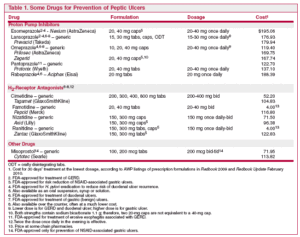New Tea Research Boasts Heart, Brain, and Immune Benefits
New Tea Research Highlights Benefits for Heart, Brain, and Immune Health
Estimated Reading Time: 7 Minutes
Recent scientific studies reveal that tea is more than just a soothing drink; it offers substantial health benefits, particularly for the heart, brain, and immune system. Presented at the 6th Global Medical Symposium on Tea and Human Health, these findings emphasize how regular consumption of real tea can significantly improve cognitive function, cardiovascular health, and immune performance. This article explores the latest research and provides insights into how incorporating tea into your daily routine could benefit your overall health.
Overview of the 6th Global Medical Symposium on Tea and Human Health
The 6th Global Medical Symposium, held on April 26, 2022, showcased groundbreaking research on the health benefits of tea. Hosted by the Tea Council of the United States, the symposium was co-backed by prestigious institutions such as the American Cancer Society and the Oregon State University Linus Pauling Institute. The focus of the symposium was on how the compounds found in real tea contribute to enhancing heart health, brain function, and immune defense.
Understanding Real Tea: What Sets It Apart?
All true teas are derived from the Camellia sinensis plant, an evergreen shrub that thrives in warm climates. The five main types of true tea—black, green, oolong, dark, and white—differ in their processing methods and oxidation levels. Unlike herbal teas like chamomile or mint, which are not technically “real teas,” these traditional teas are rich in naturally occurring compounds known for their antioxidant properties, such as flavonoids and L-theanine, an amino acid linked to cognitive benefits.
Cognitive Benefits: Tea and Brain Health
Cognitive impairment affects millions, particularly in the United States, where more than 16 million people are living with conditions that impact memory and mental function. At the symposium, experts highlighted the promising role of tea in supporting brain health. Dr. Louise Dye, a professor at the University of Leeds, discussed how the compounds in tea can enhance cognitive performance. Notable findings include:
-
Improved Attention: Studies have shown that consuming tea helps improve focus and attention span, especially during stressful periods.
-
Reduced Risk of Dementia: Regular tea consumption has been linked to a reduced risk of developing vascular dementia and Alzheimer’s disease. Just two cups a day could offer protection against cognitive decline.
Cardiovascular Benefits: Tea and Heart Health
Cardiovascular diseases remain the leading cause of death in the United States, making heart health a critical concern. Dr. Taylor Wallace, a nutrition professor at George Mason University, presented evidence supporting the cardiovascular benefits of tea. Notably, tea is one of the richest sources of flavonoids in the diet. Studies show that consuming two cups of unsweetened tea daily can:
-
Lower the risk of death from cardiovascular disease by 4%
-
Reduce the chance of stroke events by 4%
-
Contribute to better heart health by reducing overall cardiometabolic risks
These benefits stem from tea’s high content of flavonoids, which have powerful anti-inflammatory and antioxidant properties.
Immune System Support: Tea’s Role in Immune Health
Tea is often a go-to drink when you’re feeling under the weather, but recent studies suggest it might be doing more for your immune system than you think. Dr. Dayong Wu, a leading researcher at Tufts University, discussed how the catechins found in green tea can enhance immune function by inhibiting pathogen growth and stimulating the immune response. Key findings include:
-
Antiviral Properties: Green tea’s catechins may help block viral entry into cells, preventing infections.
-
Anti-inflammatory Effects: Tea’s compounds can reduce inflammation, aiding in faster recovery and overall immune support.
How to Incorporate More Tea Into Your Routine
If you’re not already a regular tea drinker, it’s easy to start incorporating this beneficial beverage into your daily life. Here are some tips:
-
Make Iced Tea: Brew tea bags in hot water and serve over ice for a refreshing, cold beverage.
-
Start Your Day with Tea: Swap your morning coffee for a cup of black tea to kickstart your metabolism.
-
Evening Rituals: Replace your evening cocktail with a cup of calming white tea for a relaxing end to your day.
-
Tea Lattes: For a twist on your usual latte, make one using tea instead of coffee.
-
Sun-Brewed Tea: Brew tea bags in water left in the sunlight for a refreshing, naturally sweetened drink.
Frequently Asked Questions About Tea and Health
-
How Does Tea Affect Iron Absorption? While tea contains tannins, which can inhibit iron absorption, this effect is usually minimal if consumed in moderation with meals that contain iron-rich foods.
-
Does Tea Lower Cholesterol? Studies suggest that regular tea consumption may contribute to lower cholesterol levels, particularly by reducing LDL cholesterol (the “bad” cholesterol) and improving overall lipid profiles.
-
Is Tea Good for Your Blood Pressure? Tea, especially green tea, has been shown to have a modest positive effect on lowering blood pressure, particularly in people with high blood pressure.
-
Can Green Tea Help Clear Skin? Green tea’s antioxidant properties may help reduce skin inflammation and acne. The catechins in green tea can improve skin health by decreasing sebum production and fighting oxidative stress.
Conclusion
The scientific evidence presented at the symposium underscores the many health benefits of real tea. Whether you’re interested in improving brain function, supporting heart health, or boosting your immune system, drinking just a cup or two of tea each day could have a lasting positive impact on your well-being. Consider incorporating tea into your daily routine to enjoy its full range of health benefits.







